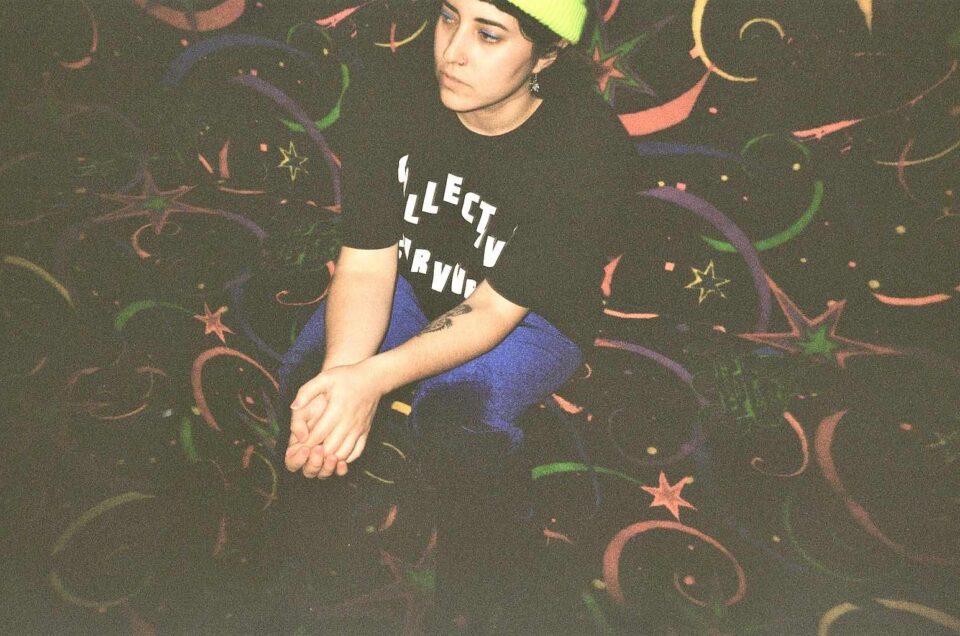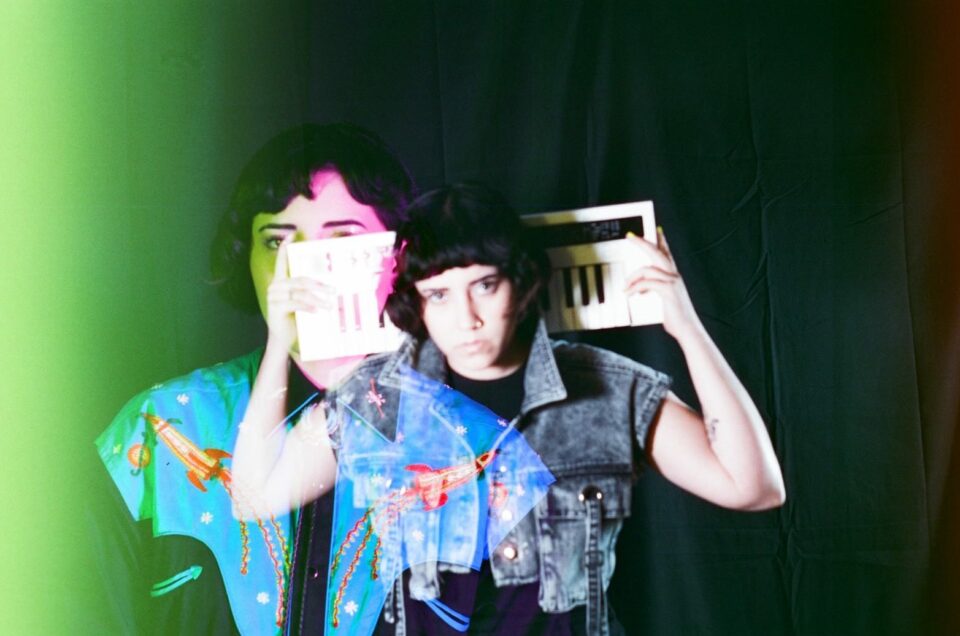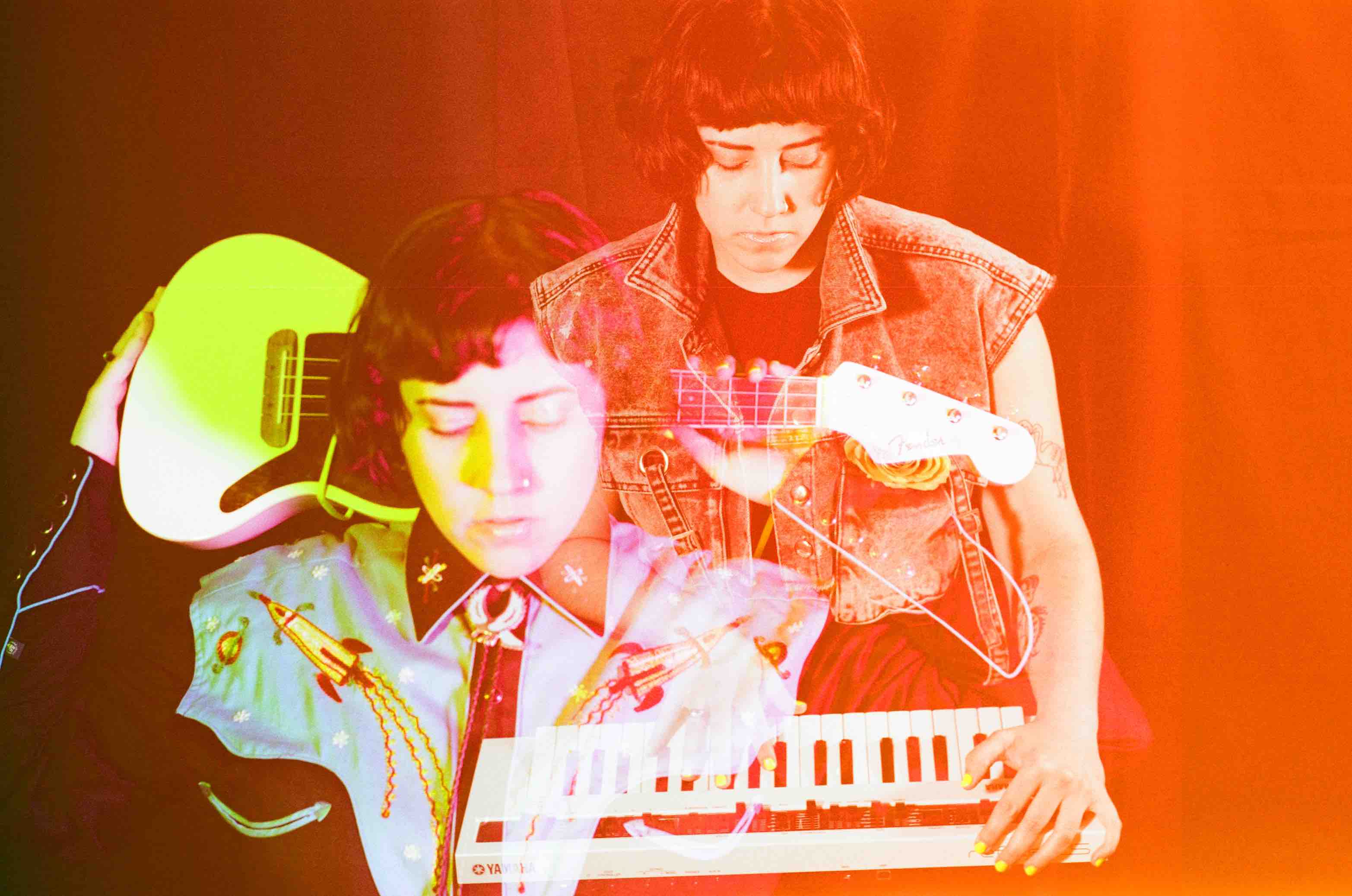BACKSTORY: Singer, songwriter, and multi-instrumentalist splitting her time between fronting a dream-pop group and writing ukulele-infused electropop with trap and Latin pop shadings
FROM: Born in Chula Vista, California, raised in Tijuana, Mexico, and currently based in San Diego
YOU MIGHT KNOW HER FROM: Her work fronting the shoegaze group Lunarette (f.k.a. Gingerlys) or her 2019 EP LuvHz
NOW: Releasing her debut full-length Galaxia de Emociones via ZZK Records and hitting the road in support of it
“It feels like I’m starting from scratch,” Jackie Mendoza tells me at the end of our conversation, sounding more hopeful than weary as she anticipates an upcoming tour with a newly assembled backing band. Although the LA-based songwriter had established an underground presence with her dream-pop outfit Gingerleys (rechristened Lunarette in 2021), Mendoza herself was among the unfortunate category of artists to launch a new project immediately before the pandemic hit, robbing these songwriters of studio access and collaborators, let alone inspiration.
Yet Galaxia de Emociones picks up directly where her 2019 debut EP LuvHz left off, compiling 13 tracks that valiantly attempt to sum up the infinite expanse of feeling swirling within all of us. Despite making a name for herself fronting a shoegaze outfit—and, prior to that, posting original solo material performed on ukulele to YouTube as far back as age 14—her solo career is a purer distillation of her own personal galaxy, swirling spaced-out electronics and engaging Latin-pop beats around bilingual lyrics spanning this galactic gamut of emotion. “I was always making music on the side just for myself,” she shares. “Some of that dream pop, shoegaze sound from Gingerlys and Lunarette seeped into my own stuff when I was writing and starting to record.”
Once again paired with producer Rusty Santos, known for his work with Panda Bear and Animal Collective, Mendoza mines a not-entirely-dissimilar psychedelic palette, while the constant presence of her uke (not to mention an accordion cameo on “3AM”) grounds the songs in her own universe of sound. “Once I started producing electronic music and beats, I wanted to blend this instrument that I liked with the stuff I was making, and I realized I could add effects to it and make it sound really ethereal,” she explains. “It was a sound I’d never heard before—that excited me, so I stuck with it.”
“I wanted to blend ukulele with the stuff I was making, and I realized I could add effects to it and make it sound really ethereal. It was a sound I’d never heard before—that excited me, so I stuck with it.”
You’d be forgiven for not immediately picking up on the presence of the stringed instrument weaving its way through these songs, distorted and overshadowed as it often is. On lead single “Pedacitos” a bass-heavy beat makes quick work of its introductory strums, while “Mousetrap”—punning on its title—is all ambient synth and trap beats. Meanwhile, the second song to be made available from the collection is the only one in Mendoza’s budding discography to lean into the inherent twee-ness of the instrument: the saccharine “Let’s Get Maui’d” was named after a line from (and harnessed the campy energy of) an episode of 90 Day Fiancé. “It was definitely meant to be a silly song,” she shares. “Not to be taken seriously, but a likable song that kind of shows my personality more so outside of music, because I usually take music too seriously.”

Yet that silliness is still grounded by a looming sense of reality midway through the song when an offhand reference to N95s reminds us of the grimly understated truths ironically not documented in the universe of reality TV. And things only get darker on the next track, “Oh Cielos,” one of the most instrumentally brooding cuts on the whole LP. The two consecutive tracks are a prescient indicator of the broad emotional strokes Mendoza is painting with here, both songs demarcating the polarized ends of our mood spectrums that only seem to obscure and fold in on themselves as we grow older and learn new emotions that don’t easily fit either binary. “I imagined a color wheel of emotion,” she explains of the album’s title and concept, “and how you could just blend any together and it forms this emotion that’s hard to describe—some don’t even have a word to put to that emotion.”
“I imagined a color wheel of emotion, and how you could just blend any together and it forms this emotion that’s hard to describe—some don’t even have a word to put to that emotion.”
Mendoza attributes going boldly where she’d never gone before to a pandemic-necessitated therapy visit to ease the anxieties raised by the uncertainties of early COVID—though the sessions also wound up helping with her writer’s block. “My therapist at the time would give me homework to write songs about what I was feeling, and a few of the songs on the album came from that,” she says, noting that before these visits she’d intended to follow up LuvHz with another EP. “And that’s how I came up with the title.” She notes that this title also plays into more literal themes of outer space, an influence that also comes through in the sci-fi direction her lyrics and clubbier instrumentals tend to take. “I’ve always been really inspired by outer space,” she shares. “I wanted to make a project that would reflect that through sound.”
As with even the most dystopian works of science fiction, Galaxia’s fantastical imagery outweighs the darker lyrical elements, always managing to buoy the indescribable emotions that feel the most negative. “Even when I write sad songs, they end up sounding happy somehow. I think that’s because when I write it’s very therapeutic for me. Even when I’m writing about or for someone else I’m always projecting. The songs always end up having a message back to myself. Hearing it back gives me a sense of peace.”
I’m not sure there’s a word for this specific sense of peace, but at least now there’s a soundtrack for it. FL








